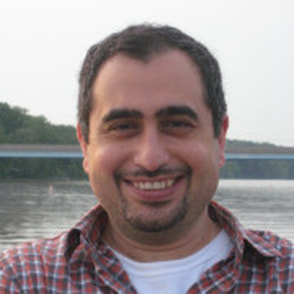In Fall 2018 Cognitive & Information Sciences welcomes a new Research Scientist, Dr. Tony Shahin. We asked Tony about his background, research interests, and why he’s excited about UC Merced. See his responses below.
What is your background?
My undergraduate and graduate degrees are in Physics/Medical Physics. As a graduate student I was drawn to the problem of imaging brain function, specifically how the brain processes music and language. Since neural activityrepresents electrical currents, I now use electroencephalography (EEG) to detect this activity and to draw conclusions about what it signifies in terms of brain function.
What are your research / scholarship interests?
My main research focus is on understanding how the visual and auditory senses combine to enhance spoken language comprehension in adverse listing situations and in individuals with hearing loss. What we see influences what we hear. Using EEG, I have shown that reading lip movements while listening to speech in noise, changes neural representations at the auditory cortex, via inhibiting irrelevant sound representations (noise) and exciting relevant sound representations (attended speech), allowing for enhanced perception of speech.
What drew you to CIS at UC Merced?
One draw was that although the Cognitive Sciences Department at UC Merced is one of the youngest in the nation, it has grown to be one of the most reputable and popular CogSci departments nationwide. I felt not only that my research would be well supported, but also, that I could contribute to the growth of the department by bringing new ideas and research themes. Another draw was the move to the Central Valley. This move provided us with two benefits. First, it brought our residence (me and my wife) closer to the residences of our families. Second, because one of my research interests is understanding language-related phenomena in non-native English speakers, being at UC Merced is an ideal location for my research, given the large population of bilingual or multi-lingual individuals in the region.




